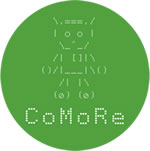As research in robotics and AI has rapidly evolved over the past decade, a new set of social, philosophical and cultural issues emerge. Assets that traditionally belonged exclusively to humans, such as complex reasoning or intelligence, start to be challenged by AI. What is more, social robots have already proven a good capacity to take over human related activities such as car driving, medical diagnosing or elderly care. Most notably, self-learning artificial systems, which have the ability to learn by themselves from their interaction with the environment, often display behaviour with unpredictable consequences, including negative ones.
In face of these challenges, a new set of important moral issues needs to be addressed: Who is morally responsible for the decisions taken by highly autonomous artificial systems? Can (robotic) AI systems be morally praise- or blame- worthy? Is the Aristotelian virtue ethics framework adequate to address moral responsibility issues related to AI deployment? These are the main questions that shape the focus of the CoMoRe research project.
To address these issues, the CoMoRe research team works on three main directions. First, we analyse the possibility to conceive of artificial moral agents by pursuing a novel and under-researched direction, namely, by comparing the moral status of artificial systems to the moral status of artificial agents made by collections of humans, such as organizations.
Second, we critically assess the applicability of the Aristotelian virtue ethics framework to AI systems, potentially offering an innovative perspective on the way we could address moral responsibility ascriptions related to AI deployment.
Third, we explore the need to develop an original, more refined philosophical terminology to describe new and emerging technologies, such as artificial systems, while preserving the traditional notion of moral agency for human use.
Key words:
1. collective moral responsibility
2. artificial morality
3. moral agency
4. virtue ethics
5. Aristotle
Project duration: 24 months (January 2021-December 2022)
Total budget: 431.000 RON
Scientific report 2021 (in Romanian)
Scientific report 2022 (in Romanian)
News
Contact
Research Center in Applied Ethics
Faculty of Philosophy, University of Bucharest
Splaiul Independenţei, No. 204,
Bucharest, 060024, Romania

